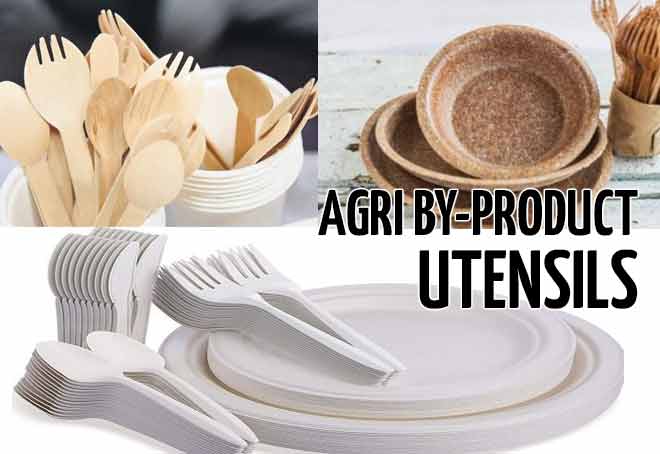BIS sets criteria for Agri By-Product Utensils to cut plastic pollution
 BIS sets criteria for Agri By-Product Utensils to cut plastic pollution
BIS sets criteria for Agri By-Product Utensils to cut plastic pollution New Delhi, June 23 (KNN) The Bureau of Indian Standards (BIS) on Thursday introduced IS 18267: 2023 “Food Serving Utensils Made from Agri By-Products – Specification”, aimed at reducing plastic pollution and promoting sustainability.
The standard provides comprehensive guidelines to manufacturers and consumers, ensuring uniformity in quality requirements across the country, said the Ministry of Consumer Affairs, Food & Public Distribution.
The central government is of the view that the implementation of this standard has extensive advantages as using biodegradable agri by-product utensils can contribute towards environmental safety, conserve natural resources, and promote a circular economy.
“The standard also creates economic opportunities for farmers and supports sustainable agricultural practices, contributing to rural development,” as per the official statement.
Disposable plate’s market size was valued at USD 4.26 Billion in 2020 and is projected to reach USD 6.73 Billion by 2028, growing at a Compound Annual Growth Rate (CAGR) of 5.94% from 2021 to 2028.
The Ministry has said that numerous large-scale and Micro, Small & Medium Enterprises (MSME) level manufacturers are actively contributing to the production of biodegradable cutlery, and they stand to benefit immensely with this Standard.
It covers various aspects, including raw materials, manufacturing techniques, performance, and hygiene requirements for the production of biodegradable utensils. It specifies the use of agricultural by-products, such as leaves and sheaths, as preferred materials for making plates, cups, bowls, and more.
The standard recommends appropriate parts of plants and trees and provides manufacturing techniques like hot pressing, cold pressing, moulding, and stitching. It also emphasizes smooth surfaces, non-sharp edges, and prohibits the use of chemicals, resins and adhesives. (KNN Bureau)

New Delhi, June 23 (KNN) The Bureau of Indian Standards (BIS) on Thursday introduced…
New Delhi, June 15 (KNN) The Central Government has reduced the basic import duty on…
New Delhi, June 15 (KNN) During the financial year 2022-23, India witnessed an unprecedented surge…
Hyderabad, June 15 (KNN) The three-day Agriculture Working Group (AWG) is all set to take…
Trichy, June 13 (KNN) The Tiruchirappalli Agri-Business Incubation Forum and the Export-Import Federation of Trichy…